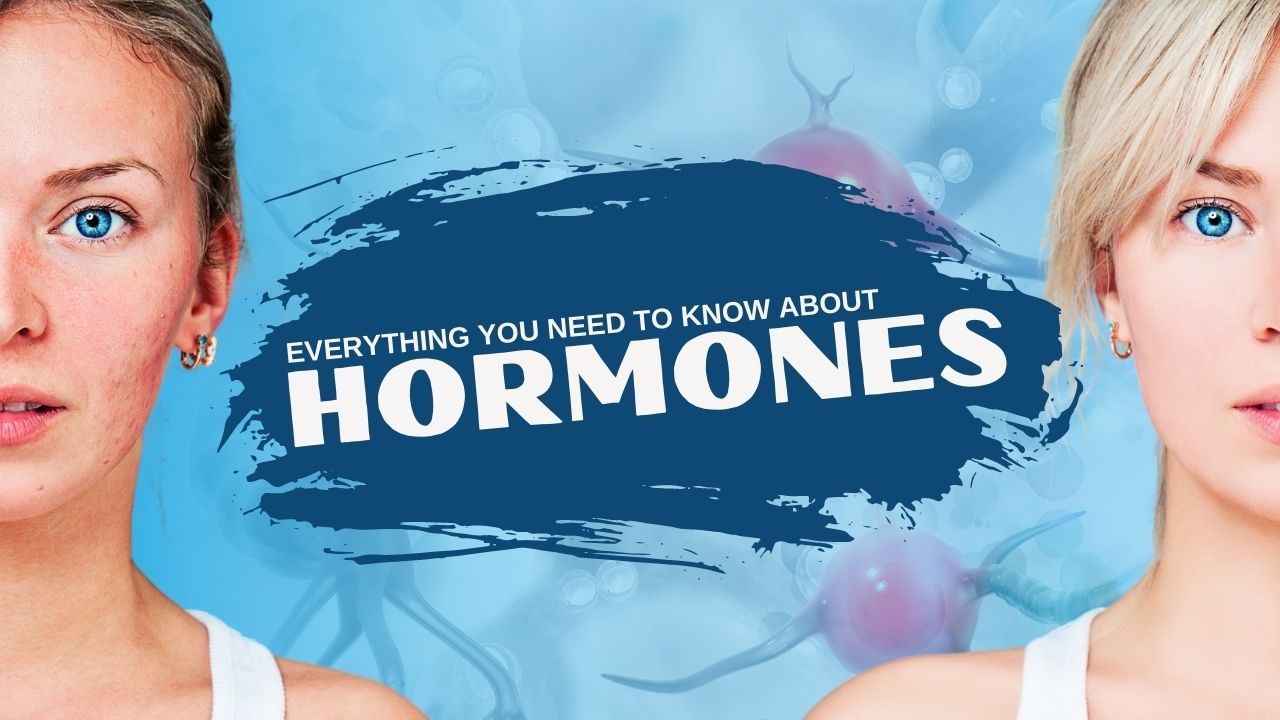In this article, we’re going to reveal major components that affect hormones that you may not be aware of that do make a significant difference in whether we have hormone balance or whether we have hormone dysregulation.
Watch our video here: https://www.youtube.com/watch?v=doGFrKr7M90
What we want to talk about today is hormones and hormone imbalances, something that we see a lot in our patients and also something that people want more natural answers to.
A lot of times people are either not processing out estrogen, or they’re not making enough progesterone. These are the components we want to go through, as well as are there foods that will either increase or decrease or help with hormone balancing?
What are the components we see people struggling with or see things that will maybe involve or affect hormones negatively?
Stress
Stress and its relationship to hormone production are important. We see a lot of our patients that are what we call sympathetic dominant or fight or flight prone basically. So your body gets stuck into a kind of fight or flight response when you’re under chronic stress and one of the aspects or symptoms of that is your body starts to dysregulate your hormone production, including your cortisol, which is a stress hormone. Your thyroid takes effect too, but also would apply to the progesterone, estrogen, testosterone cycle as well, so your body is in panic or survival mode, and some of those regulating your hormones do not take priority sometimes in that scenario.
We call that the HPA axis. So that’s the hypothalamus, which acts on the pituitary, and then the next part of that is the adrenals. But the pituitary also affects what major organ? Your thyroid. It can almost be the last square diamond so when we talk about the hypothalamus it is the highest kind of brain component that’s involved in regulating how our body responds to stress, and a lot of times, if we’re exposed to stress, over years and years and years, we develop hypersensitivity to it.
So then we look at the pituitary. So the hypothalamus acts on the pituitary, then affects cortisol as well as, thyroid hormones. So if we’re just stuck in that part of the conversation, we see that a lot of people will have cortisol problems. Meaning cortisol will go up for a period of time and then it can even crash for a period of time, which is even worse. So we look at adrenal fatigue and also adrenal exhaustion. And when that’s occurring, we also find that people will typically have thyroid issues, thyroid numbers that are not what they should be, because the stress is affecting the pituitary.
It’s all a regulated cycle. The body functions appropriately until it reaches a maximum amount of energy output, and then it doesn’t have any more basically to give, to regulate that. So that’s what these changes in your thyroid numbers or the cortisol numbers kind of set in when the body reaches its maximum energetic output potential and we just kind of start to crash at that point.
How does estrogen dominance occur in this hyper-stress scenario? So it’s stress first, which leads to typically estrogen dominance. Estrogen dominance is more of a problem, now than it had been in the past, just because of exposure to hormones and medications and things like that.
Your body could be producing less progesterone to even out the estrogen or your body is not detoxing out the extra estrogen. That’s kind of floating around the system. So you’re holding onto more of that. We can do hormone testing to kind of see where you’re high or low, in those specific hormones, but that’s usually the scenario. This can also be related to what some people referred to as cortisol steal, where, cortisol is stealing the. They’re both coming from the two pituitary cortisol’s kind of stealing the wrong products from what the body is trying to do with thyroid hormones or other types of pheromones.
Any menopausal type symptom or even in cycling women that have you know irregular periods or heavy periods or pain with periods, or they haven’t had one for a period of time. I mean, we’re treating a slew of female symptoms and we see good results with, supplemental treatment, helping the body to detox, following specific nutrition programs, and using some technology.
The symptoms can resolve and we actually can regulate periods. There’s a supplement protocol where we are supporting the thyroid or hypothalamus, pituitary, and the body’s ability to produce progesterone through the ovaries. It can affect fertility too. So that’s some of the things that we have seen.
We have come across many patients that come in and they’ve been trying to get pregnant and it’s not happened for them for so long, and they’ve tried all of the traditional medication types of things, and then we’re able to help their bodies to detox and get them on a good supplement or hormone regimen.
Follow the right nutrition, guidelines, get things functioning better. And we have had patients get pregnant after that. We had this patient doing that estrogen dominance protocol and she had been struggling to get pregnant. And she literally just told us on Monday that she found out she was pregnant! Another pregnancy story in the books!
Food recommendations to help with better management of hormones?
I think it’s pretty well understood even among late laymen, that dairy is going to affect your hormones because they’re literally feeding the cows hormones.
So you get the milk from the cows. Who’ve been given hormones and then you’re ingesting it. So we cut out dairy when we’re following our anti-inflammatory program, but basically, we want your body to not have chronic inflammation. So we don’t eat much gluten. We don’t do much sugar. We really limit those things that are more inflammatory to the body.
The more inflammation, the less proper functioning of all that hormone balancing that’s going to be happening. Sugar is also a big component of that. And then the other component is synthetic chemicals. We’re trying to stay away from these. A lot of these different chemicals will actually, mimic thyroid hormones like fluoride will interact and kind of steal these reception areas, where hormones are attached to different cells. And so, it decreases or negatively impacts the production of those things or how they’re able to be used.
Synthetic hormones will definitely make a big difference and we call it synthetic estrogens or phytoestrogens that will mimic estrogen and again, not even raise estrogens even more. So there are plenty of things that a person can do from a lifestyle standpoint, we addressed that in our pyramid.
To know more about it and If you’re looking for a more natural way to manage your health, please contact us HERE for a discovery call to see if our approach would be appropriate for your situation.


